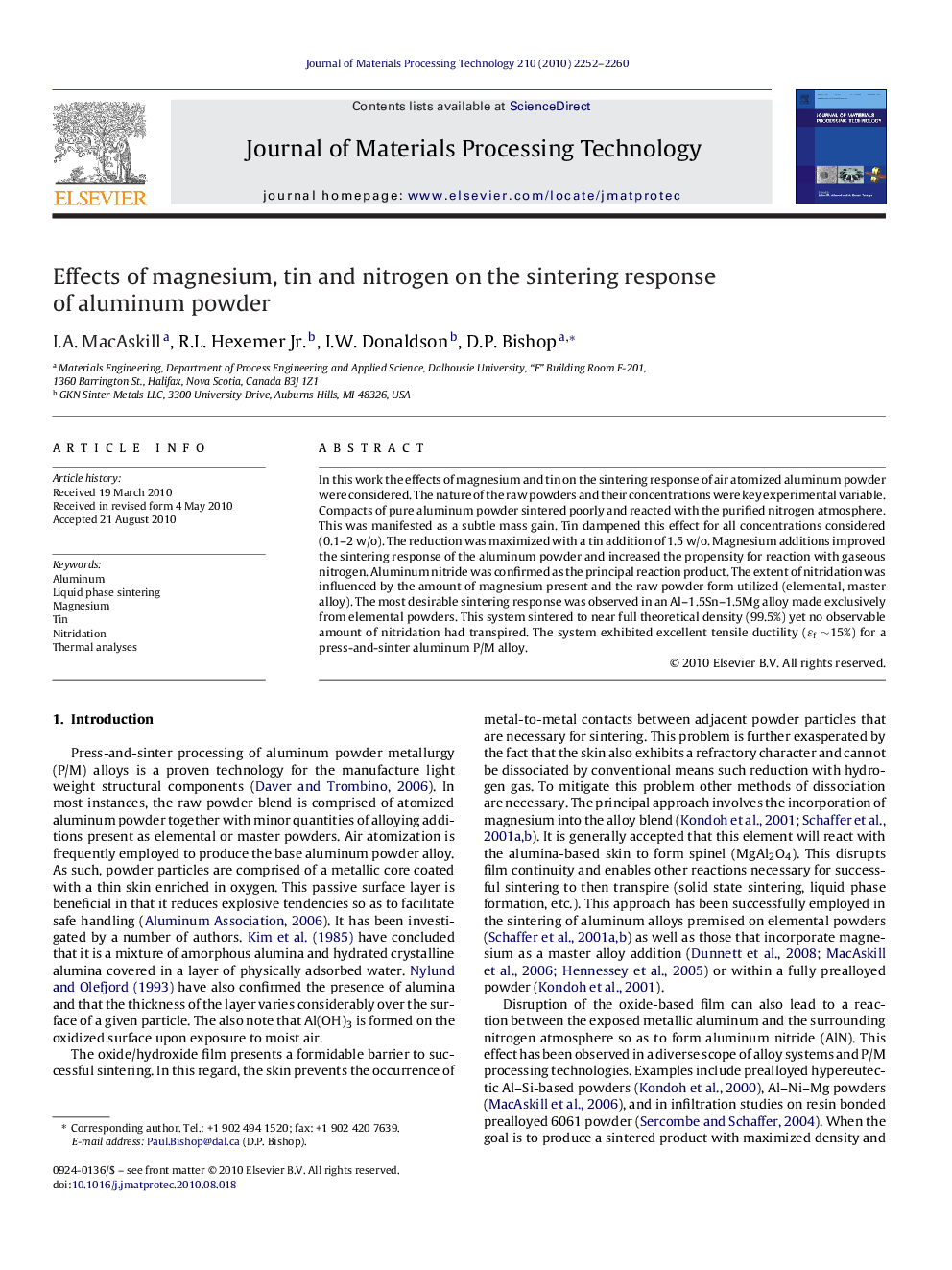| Article ID | Journal | Published Year | Pages | File Type |
|---|---|---|---|---|
| 796034 | Journal of Materials Processing Technology | 2010 | 9 Pages |
In this work the effects of magnesium and tin on the sintering response of air atomized aluminum powder were considered. The nature of the raw powders and their concentrations were key experimental variable. Compacts of pure aluminum powder sintered poorly and reacted with the purified nitrogen atmosphere. This was manifested as a subtle mass gain. Tin dampened this effect for all concentrations considered (0.1–2 w/o). The reduction was maximized with a tin addition of 1.5 w/o. Magnesium additions improved the sintering response of the aluminum powder and increased the propensity for reaction with gaseous nitrogen. Aluminum nitride was confirmed as the principal reaction product. The extent of nitridation was influenced by the amount of magnesium present and the raw powder form utilized (elemental, master alloy). The most desirable sintering response was observed in an Al–1.5Sn–1.5Mg alloy made exclusively from elemental powders. This system sintered to near full theoretical density (99.5%) yet no observable amount of nitridation had transpired. The system exhibited excellent tensile ductility (ɛf ∼15%) for a press-and-sinter aluminum P/M alloy.
